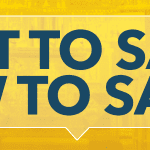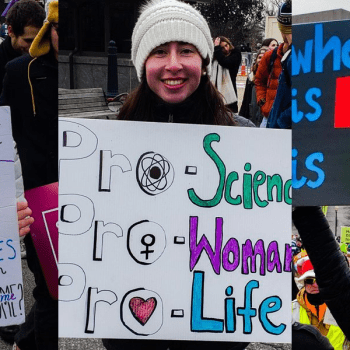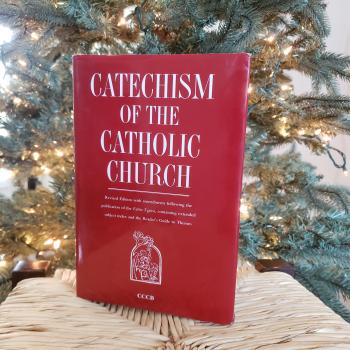Various dioceses have issued statements about vaccine mandates that seem contradictory. I think many of the others have missed one side or the other of a two-part reality. First, the Church thinks vaccines should be voluntary and supports conscience exemptions. Second, there is no reason for a Catholic religious exemption and great good to be obtained from vaccination. I think Bridgeport captures both in their statement on vaccines mandates.
Catholics Should Vaccinate
Bishop Frank Caggiano got the second part: Catholics should choose to vaccinate:
“Our Holy Father and the CDF have taught us that reception of the vaccine fulfills the moral imperative to protect the health of our neighbor and the common good of society. Those who do not wish to be vaccinated must be reminded of their moral obligation to do whatever is reasonable and required by local authorities to avoid becoming infected and transmitting the virus to others.”
The Bishop reiterated that the Magisterium of the Church has clearly taught that there is no moral prohibition for any Catholic to receive the Moderna or Pfizer vaccine. Further, the Congregation for the Doctrine of the Faith has made it clear that the Johnson and Johnson vaccine can be received by Catholics in those cases where there are no alternative vaccines available.
When there is “no moral prohibition” on an act and a great moral good from that act, one should generally do that act. Thus, there is a general moral duty to protect oneself from disease through reasonable means like vaccines.
Conscience Exemptions

But Bishop Caggiano also noted we are not required to vaccinate:
While the Church has urged Catholics to get vaccinated for the common good, the Bishop said it also recognizes that a Catholic, whose conscience is properly informed on the subject after prayerful reflection, can arrive at a personal decision to refrain from receiving the vaccine. In such cases, the person may feel obligated in conscience to refrain from what is morally permissible for a variety of legitimate reasons.
The Bishop said that when people come forward requesting a letter of exemption from the vaccine, it is important that the priest meet with the individuals and explore the reasoning that led them to this conclusion.
I spoke with a priest in the diocese about what was expected in such a meeting with a person seeking a vaccine exemption. This priest indicated that the bishop expects priests to inform such parishioners’ consciences with Catholic teaching when they meet with them, not just listen and share ideas. This is important as a decent number have misrepresented Church teaching. I’ve seen people misrepresent the general moral duty to protect the health of themselves and others via immunization. I’ve seen even more misunderstandings regarding the teaching on remote cooperation.
I really wonder how many Catholics “whose conscience is properly informed on the subject” can reach a decision to request a vaccine exemption on conscience grounds? It seems unlikely that such a conclusion would be reached if they are “properly informed on the subject.” Nonetheless, the Church teaches us to respect sure consciences independent of being fully properly informed so long as they make a reasonable effort to inform their conscience and don’t commit what natural law would define as intrinsically evil. Skipping a vaccine is obviously not intrinsically evil. I hope to cover this more in-depth later.
Your Own Responsibility to Indicate a Conscience Objection
As this is a conscience exemption, not a religious one, it is the person’s own responsibility to express their conscience. The diocesan website continues:
However, “because such a decision is made in conscience, informed by faith, for which only the person making the decision can attest,” the priest cannot write a letter directly endorsing the exemption, the Bishop said.
“When a Catholic decides to forgo the reception of the Coronavirus vaccine, that person is making the conscientious decision to hold themselves to a more rigorous religious practice than recommended by the Roman Magisterium. As such, their request is really an affirmation of the person’s conscientious objection, informed by their personal faith and personal circumstances. Since no one can speak for the conscience of another person, only the person who arrived at such a conclusion can write a letter affirming their conclusion,” he said.
You should follow a sure conscience, but one is also obligated to form one’s conscience and express one’s conscience. I can’t know your conscience, so I can’t verify it, so I can’t write you a letter about it.
Overall, Bridgeport does a good job on their vaccine mandate statement although clarifying a few things about conscience formation could make it even better.
Note: Please support me on Patreon so I can keep writing more analysis of issues like this from the perspective of traditional Catholic moral theology.












